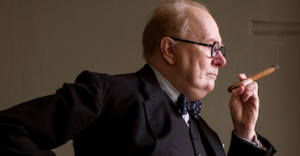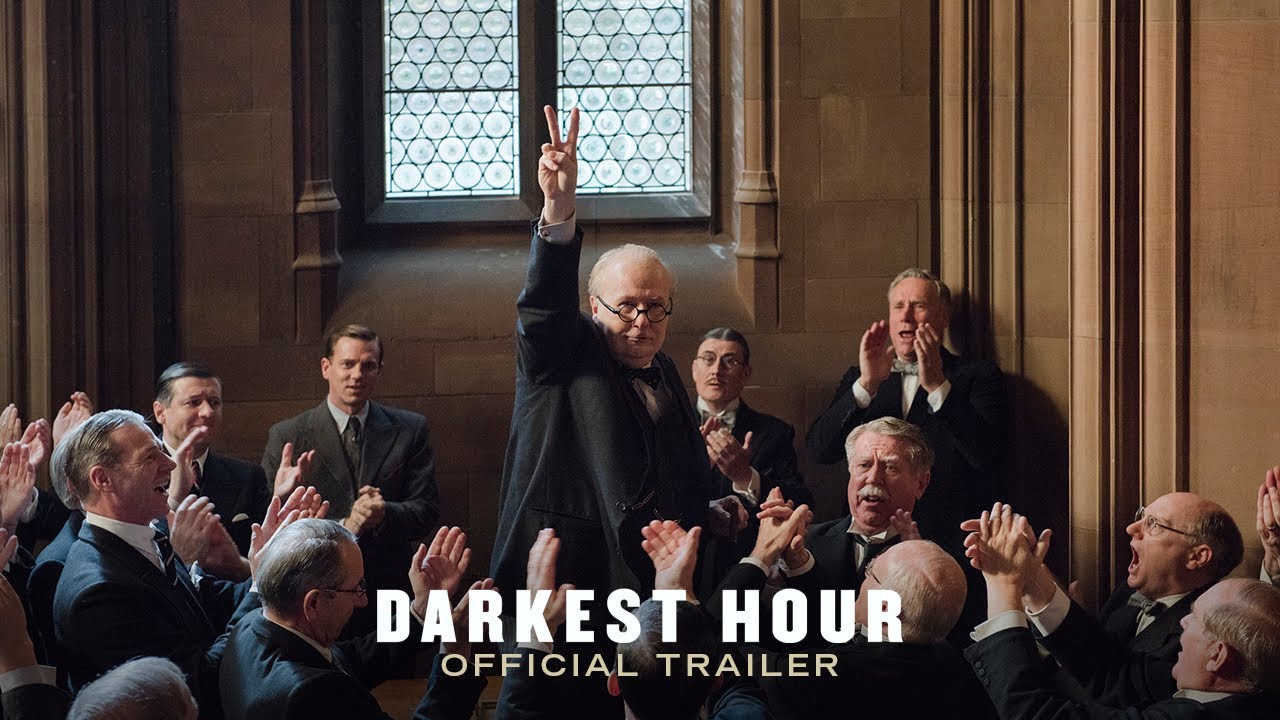
Can great individuals affect the affairs of man?
If they can, then Winston Churchill is certainly one of the greatest among them.
In many ways, the new movie “Darkest Hour” is the perfect prelude to this summer’s much acclaimed “Dunkirk,” and not just in a literal sense, since “Darkest Hour” takes place just before that desperate battle and cuts off right before it.
The film is a precursor because, in many ways, it gives the audience a much better grasp of the stakes involved in the British army’s desperate fight for survival on a French beach.
Instead of merely showing events unfold at the ground level, “Darkest Hour” focuses on Churchill, the man who led Great Britain to eventual victory in World War II.
It’s about how this man of relentless resolve, almost a caricature of British stubbornness, desperately kept his country in a fight he knew it must win at any cost. This in the face of the collapse of his country’s strongest allies, utter defeat on the battlefields, and defeatism among the ruling class at home.
Actor Gary Oldman does a fantastic job portraying Churchill, and clearly put enormous effort into getting the cadence and rhythm of that great orator’s speeches as perfectly as can be expected.
The movie takes a few liberties with history, including a wholly fake, yet moving, scene in which Churchill takes the subway and asks the people what he should do about making war or peace with the Nazis.
Yet, overall, “Darkest Hour” does a good job of accurately portraying those heady days of 1940 and giving the audience an appreciation of exactly what the British people and their, yes, heroic leader faced.
This was apparently too much for left-wing sophisticates who must find a reason to grumble about anything resembling flag-waving or an appreciation for the accomplishments of our past.
The New York Times’ chief film reviewer, A.O. Scott, wins the prize for the most obnoxious take on the movie. His conclusion really needs to be quoted at length:
Churchill’s resolve, like the bravery of the soldiers, airmen, and ordinary Britons in ‘Dunkirk,’ is offered not as a rebuke to the current generation, but rather as a sop, an easy and complacent fantasy of Imperial gumption and national unity. Standing up to the Nazis, an undeniably brave and good thing to have done, is treated like a moral check that can be cashed in perpetuity. ‘Darkest Hour’ is proud of its hero, proud of itself and proud to have come down on the right side of history nearly 80 years after the fact. It wants you to share that pride, and to claim a share of it. But we have nothing to be proud of.
There is a lot to unpack in this inane series of utterances, which are perfect examples of the state of the modern left.
For one, the defeat of Nazi Germany and the effort required to annihilate that ghastly regime is treated by the Times’ critic as a kind of mundane inevitability.
You would think it would be good to give a little more credit to those who went far beyond waging a hashtag campaign against “fascists,” and expended real blood, tears, toil, and sweat to defeat one of the most relentless and deadly enemies to freedom in human history.
Progressives are obsessed with pointing out the flaws of Western civilization to the point that many are willing to literally erase politically incorrect figures of the past for even the smallest transgression against the ever-evolving standards of the time. But these same progressives are apparently aghast to think the modern heirs to this Western tradition would pay tribute to and celebrate the clearest example of its strengths and goodness in contrast to obvious evil.
The message is: You British and Americans who live in the freest, most prosperous nations that ever have existed shall feel only shame for your country’s existence and its past. Repent!
Of course, according to these same progressives, you must always, without exception, feel only the deepest pride in whatever sexual or social choice you make if it makes you feel good.
While the film’s director, Joe Wright, appears to be liberal, it’s difficult to turn Churchill into anything but a conservative in the rawest sense. His life is certainly an example of two problematic strains for the modern liberal mind.
First is the very notion that great individuals and leaders can direct the course of men in profound ways.
As the modern academy focuses historical interpretation on societal forces rather than leaders or ideas, it is hard to accept that Churchill may have almost single-handedly changed the direction of human civilization.
In the gloomy days of 1940, as France and the rest of Western Europe teetered on the edge of collapse, the real prospect of the continent staying in the hands of Nazi Germany seemed like an inevitability.
With the Soviet Union still working with Adolf Hitler to carve up free nations, the United States cautiously waiting on the sidelines, and the comparatively small Great Britain appearing to be the only country with the power to resist, it was certainly hard to see a path to victory.
Churchill was one of the few who maintained the belief that that future reality could be changed, and perhaps the only leader who had the skill and imagination to open up a path to victory for the free world.
The left’s second big problem with Churchill is that he was an unabashed defender of the British Empire and what he called “Christian civilization.”
He maintained his Victorian-era sensibility to defend what he saw as the superiority of his people’s way of life over savagery—most notably, in the end, the savagery of Hitler and the Nazi regime.
Churchill’s belief that Hitler was nothing but a brute and a barbarian who couldn’t be reasoned with is what ultimately allowed him to see the menace of what Germany had been becoming long before anyone else. He warned his people and anyone else who would listen that they needed to prepare for war and destroy the Nazis before they became too powerful.
Appeasement of a monster invites attack, and that’s exactly what the British, French, and the rest of Europe got after a decade of trying to do anything to preserve the peace.
“You can’t reason with a tiger when your head is in his mouth,” Oldman’s Churchill belts out as his Cabinet urges him to negotiate peace with Hitler.
For statements like this, Churchill was called a warmonger. Yet it was ultimately pacifism, not bellicosity, that brought on the calamity of war. This is a lesson we must never forget.
The genius of Churchill’s statesmanship is that at the end of the day, he understood the hearts of his foes and his allies. He grasped that unreasonable people can’t be reasoned with. He also had faith and deep patience for those he knew were his nation’s real friends: France and the United States.
Churchill did everything in his power to ensure that the good would stay strong and that evil would be kept at bay; that a single day of liberty would be more worth living than a thousand years of tyranny.
Strength, forbearance, and faith—that is what pulled us through.
This defiance, and the ultimate triumph against a most heinous regime, in the deadliest war in human history, is something we all have a right to be proud of, and cherish, as long as free nations exist.
It’s certainly a good reason to go out and see “Darkest Hour.”
COMMENTARY BY

